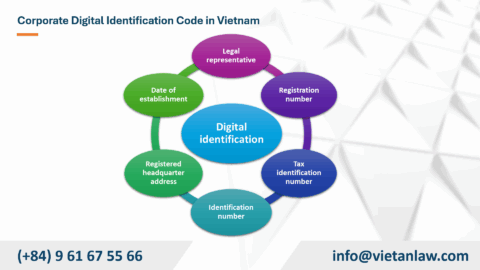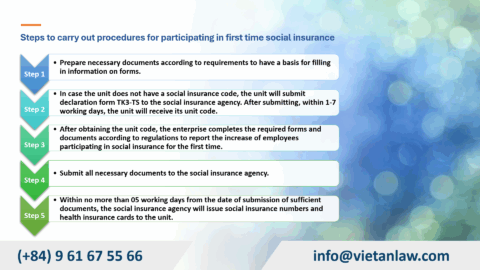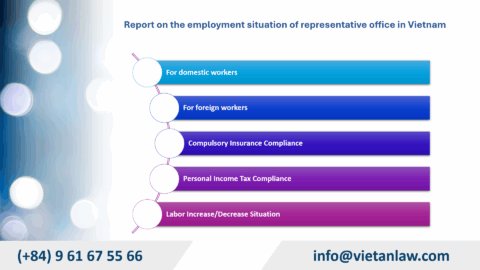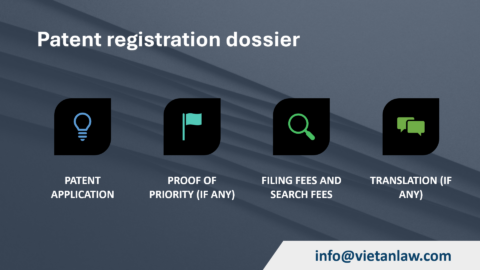If the company is operating but has members imprisoned or serving prison sentences, how will their capital contribution be handled? This is a question asked by many businesses, and to answer this question, Viet An Law Firm will present the article below.
According to the provisions of Clause 27, Article 4 of Vietnam Enterprise Law 2020, a member’s contributed capital is understood as the total value of assets a member has contributed or committed to contribute to a limited liability company or partnership.
The fact that a member is imprisoned or serves a prison sentence is one of the special cases, and the handling of capital contributions, in this case, must comply with the provisions of Clause 8, Article 53 of the Vietnamese Enterprise Law 2020 on handling capital contributions in some special cases.
Specifically, in case a company member is an individual who is detained, is serving a prison sentence, or is serving administrative measures at a compulsory drug treatment facility or compulsory education facility, that member authorizes others to exercise some or all of their rights and obligations at the company.
This provision can be explained in the sense that members who are imprisoned or serving prison sentences are not deprived of the rights and obligations they must perform within the scope of their capital contribution, but these individuals can authorize others to exercise some or all of their rights and obligations at the company.
The issue of rights and obligations of capital contributing members has been stipulated in Article 187 of the Enterprise Law 2020, accordingly, the person authorized by the member who is being imprisoned or serving a prison sentence to carry out some or all the following rights and obligations:
Capital-contributing members have the right to:
Capital contributing members have the following obligations:
It can be seen that the regulation on handling capital contributions of members who are imprisoned or serving prison sentences is a new regulation of the Vietnam Enterprise Law 2020 compared to the Vietnam Enterprise Law 2014. This regulation was issued implemented to fulfill and compensate for the shortcomings of the old Enterprise Law.
The reason for adding additional regulations on handling capital contributions of members who are imprisoned or serving prison sentences is because, without this regulation, in reality, the legal rights of members who are imprisoned or serving prison sentences have been taken away and the business’s work has also been affected. Leading to the benefits of many groups of subjects suffering damage and losses, such as:
In addition, the handling of capital contributions of members who are imprisoned or serving prison sentences also involves the distraint of capital contributions to execute the judgment, along with a number of other issues such as the type of assets owned by the member, whether the ownership of contributed assets been transferred to the company or not.
According to Article 92 of the 2008 Law on Civil Judgment Enforcement, amended and supplemented in 2014 and 2022, distraint of contributed capital for judgment enforcement is stipulated as follows: “Enforcers request individuals, agencies, and organizations where the judgment debtor with capital contribution shall provide information about the capital contribution of the judgment debtor in order to distrain that capital contribution. In case of necessity, the executor requests the competent authority to determine the capital contribution of the judgment debtor and solicit specialized organizations and individuals to determine the value of the judgment debtor’s capital contribution to enforce judgment enforcement.
This means that the capital contribution of a member who is imprisoned or serving a prison sentence can be used to distrain to execute the sentence. This capital contribution constraint is based on the value of the capital contribution of the member who is being imprisoned or serving a prison sentence, not on the type of assets contributed as capital to the company.
For example: Mr. A contributes capital to the company with 10 high-tech production machines and 500 million VND in cash, with a total value of 10 billion VND. Here, the value of Mr. A’s capital contribution is 10 billion VND, while the contributed capital assets are 10 high-tech production machines and 500 million VND in cash, i.e., when distrainting capital contributions, the Executor can only distrain the value of contributed capital of 10 billion VND.
In theory that is the case, however, the distraint of capital contributions to execute judgments in practice still faces many difficulties and obstacles. Such as:
Distraint of contributed capital to execute a judgment is not a simple task, and in fact, creates many difficulties. To reduce the burden on the Executor as well as avoid legal problems that may arise, businesses should cooperate and provide full information so that capital contribution distraint is more accurate and convenient for the investor. enterprise.
Customers who want to learn more information about capital contribution handling, please contact Viet An Law Firm for our best support!




